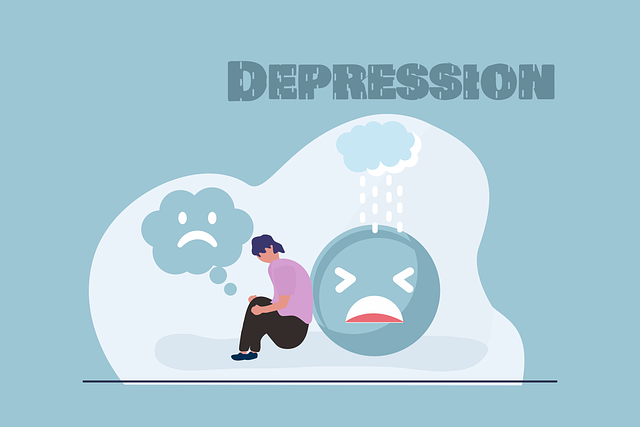Englewood Blended Families Therapy addresses healthcare provider burnout by implementing multifaceted strategies. They emphasize early detection through self-awareness and peer support, focusing on physical, emotional, and mental exhaustion signs. Their comprehensive approach includes risk assessments, open communication, stress reduction workshops, mindfulness sessions, and team-building activities to promote work-life balance. By prioritizing self-care routines with physical activity, mindfulness, sleep, hobbies, and clear boundaries, healthcare professionals can enhance resilience and deliver better patient care while reducing burnout risks.
Healthcare provider burnout is a growing concern, impacting not just individuals but the entire healthcare system. This article explores effective strategies to prevent burnout, drawing insights from Englewood Blended Families Therapy’s successful approach. We’ll delve into recognizing burnout signs and causes, creating supportive work environments, adopting self-care practices, and fostering resilience. By implementing these strategies, healthcare providers can achieve better work-life balance, enhancing patient care at Englewood Blended Families Therapy and beyond.
- Understanding Burnout: Recognizing the Signs and Causes
- Creating a Supportive Work Environment at Englewood Blended Families Therapy
- Implementing Self-Care Practices for Healthcare Providers
- Fostering Resiliency and Work-Life Balance
Understanding Burnout: Recognizing the Signs and Causes

Burnout among healthcare providers is a growing concern, impacting not only individual well-being but also the quality of patient care. Understanding burnout requires recognizing both its signs and underlying causes. Healthcare professionals may exhibit physical, emotional, and mental exhaustion, often stemming from excessive workload, lack of control over their work environment, or prolonged exposure to traumatic situations.
Englewood Blended Families Therapy emphasizes the importance of early detection through self-awareness and peer support. Cultivating empathy, a key aspect of Cultural Sensitivity in Mental Healthcare Practice, can help providers connect with patients on a deeper level, reducing the risk of burnout. Additionally, implementing Community Outreach Program Initiatives can provide much-needed breaks from clinical work, fostering resilience and promoting healthy work-life balance.
Creating a Supportive Work Environment at Englewood Blended Families Therapy

At Englewood Blended Families Therapy, we understand that creating a supportive work environment is paramount in preventing healthcare provider burnout. Our approach leverages a multi-faceted strategy tailored to meet the unique needs of mental health professionals. We conduct comprehensive risk assessments to identify early signs of stress and anxiety, enabling us to implement targeted interventions promptly. By fostering an open communication culture, therapists feel encouraged to discuss challenges and share best practices, enhancing peer support and reducing isolation.
In addition to these measures, we offer diverse stress reduction methods and anxiety relief techniques through workshops, mindfulness sessions, and regular team-building activities. These initiatives not only promote self-care but also cultivate a positive and restorative atmosphere. By prioritizing the well-being of our professionals, Englewood Blended Families Therapy ensures they can continue to provide exceptional care to their clients, creating a sustainable and fulfilling work environment.
Implementing Self-Care Practices for Healthcare Providers

In the high-pressure environment of healthcare, providers often neglect their own well-being in favor of patient care. This can lead to burnout and decreased job satisfaction. Implementing self-care practices is a proactive approach that can help healthcare professionals maintain balance. At Englewood Blended Families Therapy, we emphasize the importance of Self-Care Routine Development for Better Mental Health and Emotional Regulation. By integrating mind over matter principles into their daily lives, providers can enhance resilience and reduce stress levels.
A structured self-care routine involves a combination of physical activities, mental exercises, and emotional connections. Regular exercise, mindfulness meditation, and sufficient sleep are cornerstones of this practice. Additionally, engaging in hobbies outside of work, connecting with supportive communities, and setting clear boundaries between professional and personal life can significantly contribute to overall well-being. These strategies not only help healthcare providers maintain their mental health but also ensure they remain present and effective in delivering quality patient care.
Fostering Resiliency and Work-Life Balance

In today’s demanding healthcare landscape, fostering resilience and achieving work-life balance are vital strategies to prevent burnout among providers. Englewood Blended Families Therapy emphasizes the importance of self-care routine development for better mental health as a fundamental step towards enhancing resiliency. By encouraging professionals to prioritize their well-being, these routines can offer much-needed respite from the demands of their jobs.
Self-awareness exercises and emotional healing processes play a significant role in this journey. Through mindfulness practices and therapy sessions, healthcare providers can develop a deeper understanding of their emotions, triggers, and coping mechanisms. This self-reflection allows them to set boundaries, manage stress effectively, and maintain a healthier work-life balance, ultimately reducing the risk of burnout.
Healthcare provider burnout is a growing concern, but with the right strategies, it can be mitigated. By understanding burnout’s signs and causes, creating supportive work environments, implementing self-care practices, and fostering resilience, organizations like Englewood Blended Families Therapy can enhance provider well-being. These measures not only benefit individual therapists but also improve patient care and the overall success of therapy practices.










